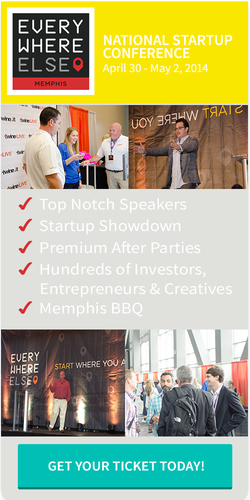 Do you sometimes lie awake at night wondering what will happen if your biggest customer doesn’t pay you? How about if the vendor handling your website upgrade takes off with your thousand-dollar down payment? These scenarios would be a nightmare for any bootstrapping entrepreneur — and they happen all the time.
Do you sometimes lie awake at night wondering what will happen if your biggest customer doesn’t pay you? How about if the vendor handling your website upgrade takes off with your thousand-dollar down payment? These scenarios would be a nightmare for any bootstrapping entrepreneur — and they happen all the time.
The Problem
Here’s a pretty typical scenario. One of my clients, who owns an Internet-based consulting firm, was hired to create a new website for a client a few months back. He received a $500 deposit for several thousands of dollars worth of work. Then he hired a web coder, with whom he had a good relationship, to handle certain aspects of the design. He and the coder completed the work, and guess what happened next?
The client stiffed him. And not only him, but also his colleague, because he didn’t have the money to pay the web coder out of his own pocket. This caused a strain in the relationship between the consultant and his coder, and a major strain on his pockets.
Several months later, the consultant hired me and I used my magical lawyer ways to collect all of the money from the client. (Note: magical lawyer ways = calling the client, announcing that I am a lawyer and demanding payment. Okay, okay, it was more complicated than that but, most importantly, it worked). He was happy to get fully paid, but the strain on the relationship could not be erased, he lost the time value of the money he was paid in January instead of August, he spent a lot of time chasing this guy instead of working on other projects, and he was out the attorney’s fees he had spent, too.
The Solution
How would this scenario have been different if the consultant had a contract for both relationships? First of all, in his initial strategy session with me, I would have advised him that his payment collection method wasn’t working and we would have set up a better payment system. Additionally, the client contract would have required the client to pay interest on late payments and court fees plus attorney’s fees if he wound up having to take him to court. This makes it really easy to sue and win.
With such a contract, the chances of getting an enforceable judgment (read: getting paid) jump sky-high — and it won’t cost you money, since the client has to pay your lawyer’s fees.
The lesson? When you show clients that you are professional and serious about your business, they will think twice before trying to stiff you.
Regarding his relationship with the developer, an independent contractor agreement that stated that the coder would get paid when the business owner gets paid would have eliminated the bad blood between the parties.
So, Do You Need a Contract?
I often tell my clients, “Everyone is an enemy to your business!” Your business partners, customers, vendors, employees, etc. all have the ability to screw your business over. So you have to treat everyone (and I mean EVERYONE) like an enemy on paper. Only then are you free to treat them like a friend in person.
How do you do that? By having a contract for every relationship your business enters into.
Here’s my rule of thumb that will protect your business from all manner of headaches, financial loss, emotional distress and yes, lawsuits as well: Have a contract for every single relationship your business enters into. You and your buddy starting a new business? Create a contract that governs that relationship. Selling your new widgets in that new widget store up the street? Draft an agreement between you and the widget store owner. Setting up a website to advertise and/or sell your services? Have a privacy policy and/or terms and conditions to govern your relationship with people who check out your website.
These contracts do not have to be complicated. In fact, they can be pretty simple, but they do need to protect you from all (or at least most) of the ways the relationship can go wrong. And please don’t forget the all-important boilerplate at the end of the contract, because it provides lots of protection and will save you money, time and headaches.
Once you have an agreement with your independent contractors, vendors, clients and business partners, you can go back to getting enough sleep at night because you know you’re well-protected in any situation.
Note: This article is a resource guide for educational and informational purposes only and should not take the place of hiring an attorney. No information in this article creates an attorney-client relationship between the author and the reader.
A version of this post originally appeared on the author’s blog.
Rachel Rodgers is a business lawyer for women and/or young entrepreneurs. She runs her practice, Rachel Rodgers Law Office, entirely online. In addition to practicing law, Rachel blogs about virtual law offices and teaches a popular workshop for women lawyers who want to practice law online through her website, Her Virtual Law Office.
The Young Entrepreneur Council (YEC) is an invite-only organization comprised of the world’s most promising young entrepreneurs. In partnership with Citi, the YEC recently launched #StartupLab, a free virtual mentorship program that helps millions of entrepreneurs start and grow businesses via live video chats, an expert content library and email lessons.



















